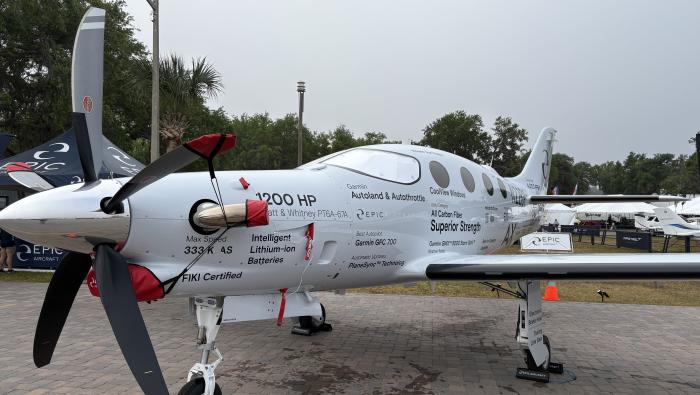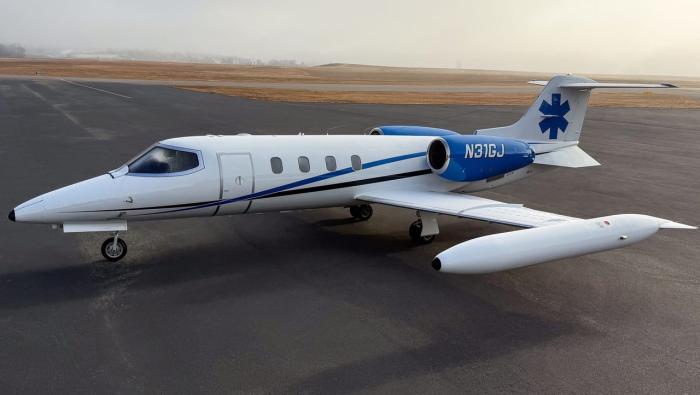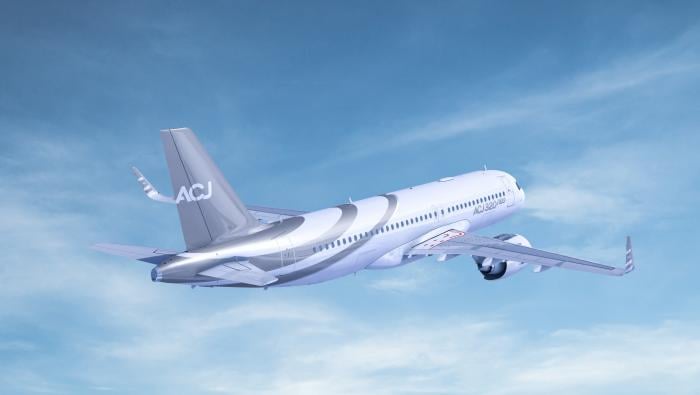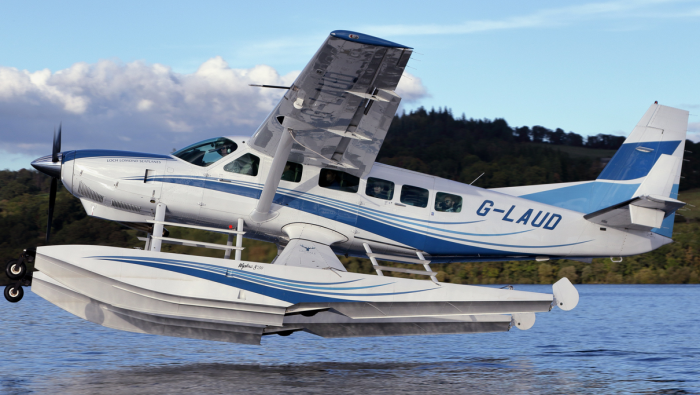Africa remains an important part of the business of Swiss charter broker Vertis Aviation, which saw its best-ever year in 2022, CEO Jeffrey Emmenis told AIN last week at EBACE.
Several factors drove the company's increased business, he said, including the number of customers traveling for leisure. “That was very big for us," Emmenis noted. "Customers on the business side, particularly in Africa, flying to more remote locations...We look after a number of heads of state and there was a lot of travel as governments started opening up and doing business. I see a little bit of softening in 2023, but it will still be quite impressive.”
He said Africa is now “on the map,” as the recent visits of U.S. Treasury Secretary Janet Yellen and Russian Foreign Minister Sergey Lavrov to Johannesburg made clear. Attention to Africa from the U.S. is increasing, Emmenis believes, with significant investment coming in. “Africa is really front and center at the moment in the world. That...can only do the continent good. It’s in the news.”
Emmenis does not like to use the term “private aviation” with regard to Africa because he does not consider the travel mode a luxury on the continent. “I consider our industry a necessity," he said, "because of the infrastructure and connectivity challenges. If you are in Ghana and you want to fly commercially to another part of western Africa, occasionally you have to travel over Addis Ababa, which is several hours in the other direction, just to turn back to get to where you need to be. When you see captains of industry and mining giants doing that, it’s not efficient.”
Emmenis agrees that the traditional centers of business aviation in Africa, like South Africa, Nigeria, and Morocco, remain strong, but he identifies other growth areas, including southern and central Africa. “If you look at Cote d’Ivoire, that’s quite mature," he said, "as is South Africa, but actually we are seeing more interest in equatorial Africa—for example, in the Congo, Gabon, and Zambia.
“There are now some newer types of aircraft in Cameroon," Emmenis added. "It really is around this commodity belt. Cameroon—cocoa, cobalt, gold, copper. Now there’s been a big oil and gas find in Mozambique and of course off the coast of Namibia, as well. So there are many things happening.”
Vertis's business model revolves around one-off charters, aircraft leases, and whole aircraft acquisitions to its charter management program. Customers can buy an airplane from Vertis and put it on charter; Vertis then supports the commercial aspects of the airplane while it’s in its operation.
“When [customers] want to dispose of that asset or renew it, we’ll sell that one and source a new one for them to buy,” he said. “The only thing that Vertis doesn’t do is operate aircraft. We’ve never done that and have no desire to. We leave that to the professionals in that field. We’ve done multiple deals, particularly in Africa. That’s where we’ve been doing a lot of business. I would like to say where, but I can’t.”
He said the majority of business aviation transactions in Africa involve preowned aircraft. “I know of a customer who just two weeks ago took delivery of his brand-new 7X," Emmenis recalled. "That’s one of the few new airplanes that I know has gone into Africa. If you do get the newer ones, then it also tends to be for the Nigerian market, which is very mature, anyway. A few of the owners of those aircraft are renewing their fleets.”
Getting people onto the continent to do business can be difficult, Emmenis said. “Occasionally, even to get from Europe into certain parts of Africa is challenging,” he explained. “You end up having to go over, as an example, Brussels; then there’s a stop somewhere else, and then you land. All of a sudden, [what could otherwise be] a relatively quick trip, which could be a direct flight of five or six hours, takes you a whole day, and occasionally, because the flight starts early, you need to travel the night before. And that’s not really convenient.
“If you are working in the Middle East, or happen to be there," Emmenis continued, "there are direct flights into a wider variety of places including using Ethiopian or Turkish Airlines or Qatar Airways or Emirates, and it gets you there in a shorter time. I think it can only be a benefit. It’s about having that interline service available to go off to the smaller lodges and places like that if you’re on the leisure side. If you’re on the business side, then into mines or wherever else you’re going.”
Emmenis does not believe that Africa-based aircraft present a challenge in terms of age, safety, or maintenance. Aircraft in Africa are being operated by companies with very good pedigrees.
“You have Luxaviation Group, which is one of the biggest players on the continent,” he said. “Avcon was doing quite a lot in Africa at one time. There are some really good operators out in Africa. Bestfly is one of them. I don’t think there’s an issue with that. If you are working with a good operator, with a good fleet of aircraft and a good track record, you are as safe as you'd be anywhere.
“In Africa, experience counts for a lot," Emmenis added. "When you’re going to locations that are more remote, going with an African operator who understands that landscape and the cultural nuances and operating environment, I think, actually enhances your safety.”
Regarding aircraft finance on the continent, given the problems experienced by Credit Suisse, Republic Bank, and Silicon Valley Bank, he said he did not know what contagion and the landscape going forward would look like.
“I’m aware that Investec does the financing of aircraft,” he said. “If they’re newer assets and the customer is of a particular caliber, you end up with your more traditional banks such as UBS. A lot of the aircraft going into Africa are preowned aircraft that are past their cutoff in terms of financing lifespan. A traditional financing model is then not available.”
Scheduled capacity continues to impact business aviation operations in Africa. “I believe the airlines are pretty much back to 70 or 80 percent of where they were in 2019," Emmenis said. "It’s just that the airplanes are very expensive at the moment because, while sales and acquisition prices of aircraft have been softening, it’s certainly not a buyer’s market.”
Emmenis finds himself traveling on the continent frequently. “I do travel around, but not as much this year," he said. "I think for me it still remains southern Africa, and then Namibia, Zambia, the Congo, Gabon, where you’ve got all of these commodities. There’s a lot of money in that middle part—equatorial Africa and just into southern Africa. South Africa remains a powerhouse but also given economic uncertainties and political changes, it’s perhaps not what it once was. And that’s giving rise to other opportunities.
“I am African," Emmenis added. "I’m loving Africa and always have. It’s a place to be reckoned with.”







